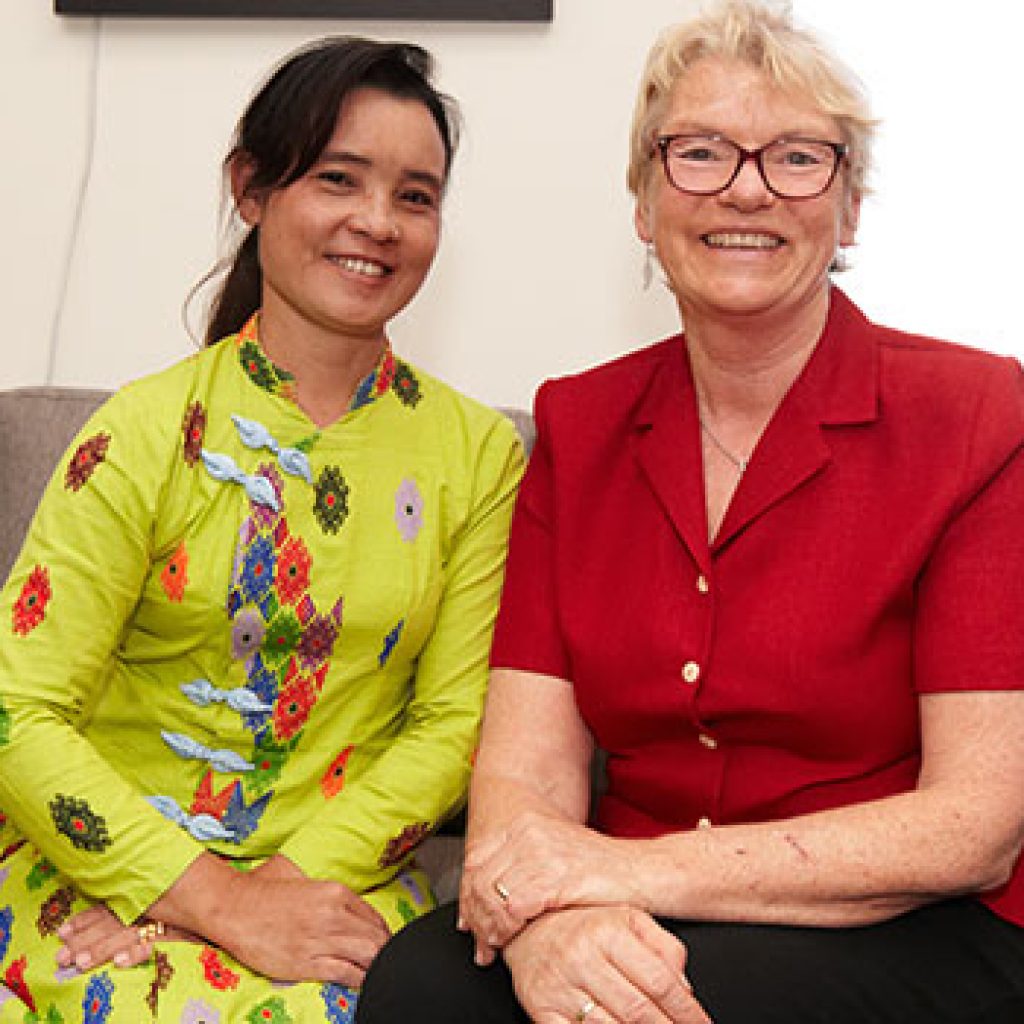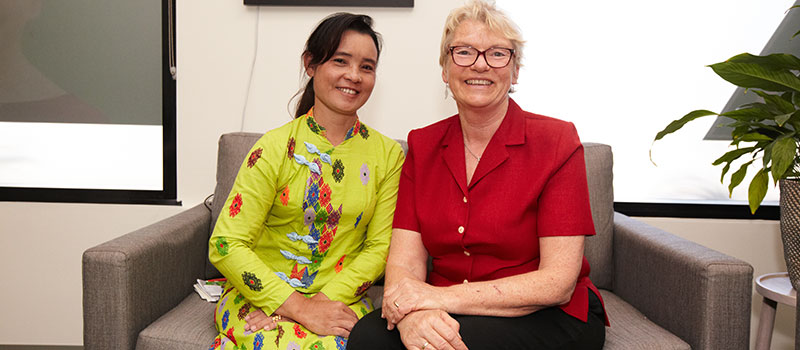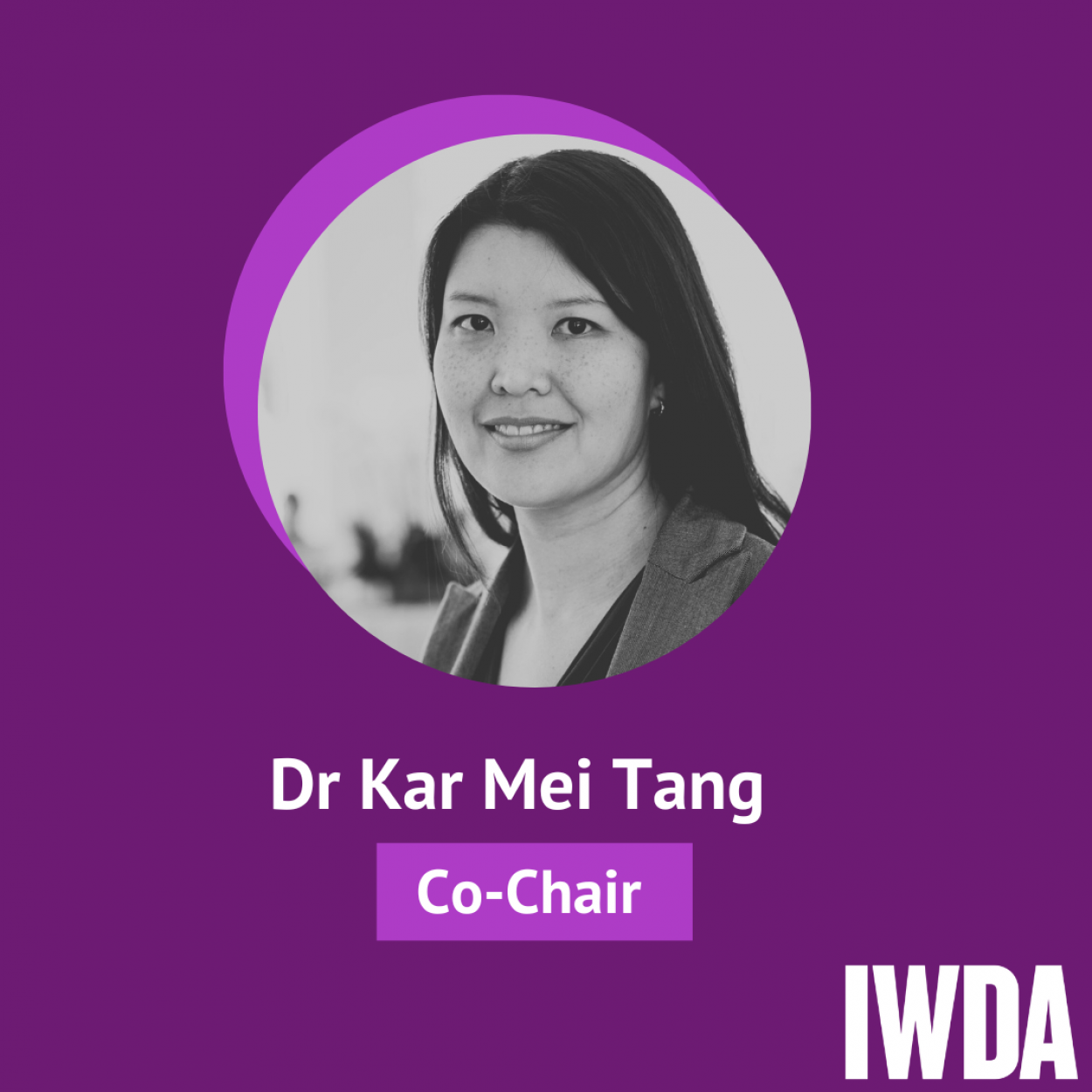
The Mountains Climbed by Women Politicians in Myanmar and Australia
IWDA’s Sophie Baggott speaks with Lwi Sar, MP for Kayah State in Myanmar, and Janet Rice, Senator for Victoria, who are participants in the Myanmar Women Parliamentarians Mentoring Program run by IWDA and our partner Akhaya Women.
IWDA’s Sophie Baggott speaks with Lwi Sar, MP for Kayah State in Myanmar, and Janet Rice, Senator for Victoria, who are participants in the Myanmar Women Parliamentarians Mentoring Program run by IWDA and our partner Akhaya Women.
The challenges facing women in politics globally are unique and often draining. For Lwi Sar MP, even the simple act of getting to work can be an endurance test.
“Because my constituency is a rural area, I have to walk two or three days to reach certain villages,” she says. “Sometimes I have to sleep on the road as there’s no hostel. Being a woman, this is not safe. Sometimes I have to cross rivers or streams and climb mountains.”
We’re sat together in Senator Janet Rice’s sunlit office for a meeting that marks the first step in Lwi Sar and Janet’s year-long mentoring partnership. It’s remarkable to see how little time it takes for the bond between them to grow. While the physical demands of Lwi Sar’s job visibly shock Janet, the psychological strains are all too familiar. Time and time again, they laugh as they hear their own experience echoed in the other’s words.
Both parliamentarians speak of the sexist criticism that targets women politicians. “People in my constituency, people in rural areas, have less trust in women MPs,” Lwi Sar explains. “I have to ignore all their criticism and keep doing meaningful work.”
“Stay strong,” Janet responds warmly, before sharing her own experience: “I face a lot of sexism and trolling online which is basically because I’m a woman, and criticism for anything I do that will then become very personal – attacks on what I look like, being overweight – and really quite sexist, personalised criticisms that men generally don’t face.”
“I think not everybody shares the same commitment to women’s equality … so actually being in the Parliament as a woman can mean you’re subject to quite a lot of sexism,” she adds. “Even when there is commitment to equality, the men take up so much space. They talk over you, take up all the time, interrupt, and you’ve got to fight just to have the opportunity to contribute to a conversation or debate.”
“Sometimes I have to sleep on the road as there’s no hostel. Being a woman, this is not safe. Sometimes I have to cross rivers or streams and climb mountains.”
The pair likewise find common ground in their conflicted feelings about the work requiring time away from home. “I have to neglect my family, my children,” Lwi Sar says. “I can’t take care of my children’s education or anything else – I have to sacrifice a lot.”
Lwi Sar nods vigorously as Janet describes the same emotions: “Early in my career, when my children were young, I had a lot of self-imposed guilt that I was neglecting them and not spending enough time with my children.”
Regardless, it’s clear the two women are staunchly committed to making a positive impact in their communities. “In my rural area, there’s no lighting, no good infrastructure, no transport,” says Lwi Sar as to why she turned to politics. “I often saw how very difficult people’s lives are, and this was what pushed me to become an MP for my area.”
Lwi Sar sees the mentoring program as an opportunity to learn how to work better in her constituency and how to prepare for Myanmar’s 2020 elections. An external evaluation of our 2017 pilot mentoring program found that the Myanmar MPs increased their confidence and public speaking skills, had more visibility in their parties and constituencies, and expanded their connections with the women’s movement, among other positive outcomes. The program is a blueprint for lifelong international connections between cross-party women parliamentarians in Australia and Myanmar.
“You’ve got to fight just to have the opportunity to contribute to a conversation”
For Janet, the program represents not only a chance to share insights but also to gain new perspectives. “I’m passionate about women being representatives and empowering women, so this was an opportunity to help women and – in particular through this program – women MPs,” she says. “I very much feel that I’m a citizen of the world, and so for me being concerned about the welfare of people doesn’t just stop at Australia.”
She adds, “This is an opportunity to learn about Myanmar and make a connection with women MPs in Myanmar, and to help people by sharing my experience of being an elected MP … I’m sure I’ll learn a lot – different experiences and different perspectives on how to tackle some of our shared problems.”
The exchange has already been a source of inspiration for Lwi Sar, who answers without hesitation when I ask about the highlight of her visit to Australia so far. “I’ve noticed many women here are very empowered and take up leadership roles,” she smiles. “That has been my favourite thing about this trip.”
Finally, Janet’s advice for women aspiring to work in the political field? “Go for it,” she says. “Surround yourself with strong women who can continually support you and give you confidence that you can do what you aspire to do. Ask for and accept help.”
They take one last photo and clasp hands. Laughing, Lwi Sar says: “We’ll never let go of each other’s hands.” The program may last a year, but this looks set to be a friendship for life.
The Women Supporting Women: Myanmar Women Parliamentarians Mentoring Program is co-funded by the Australian Government and the Government of the Netherlands and forms part of IWDA’s Women’s Action for Voice and Empowerment (WAVE) Program – a ground-breaking women’s leadership program that brings together and supports individual women, organisations and movements in Asia and the Pacific region to increase the representation of women in diverse leadership positions.



